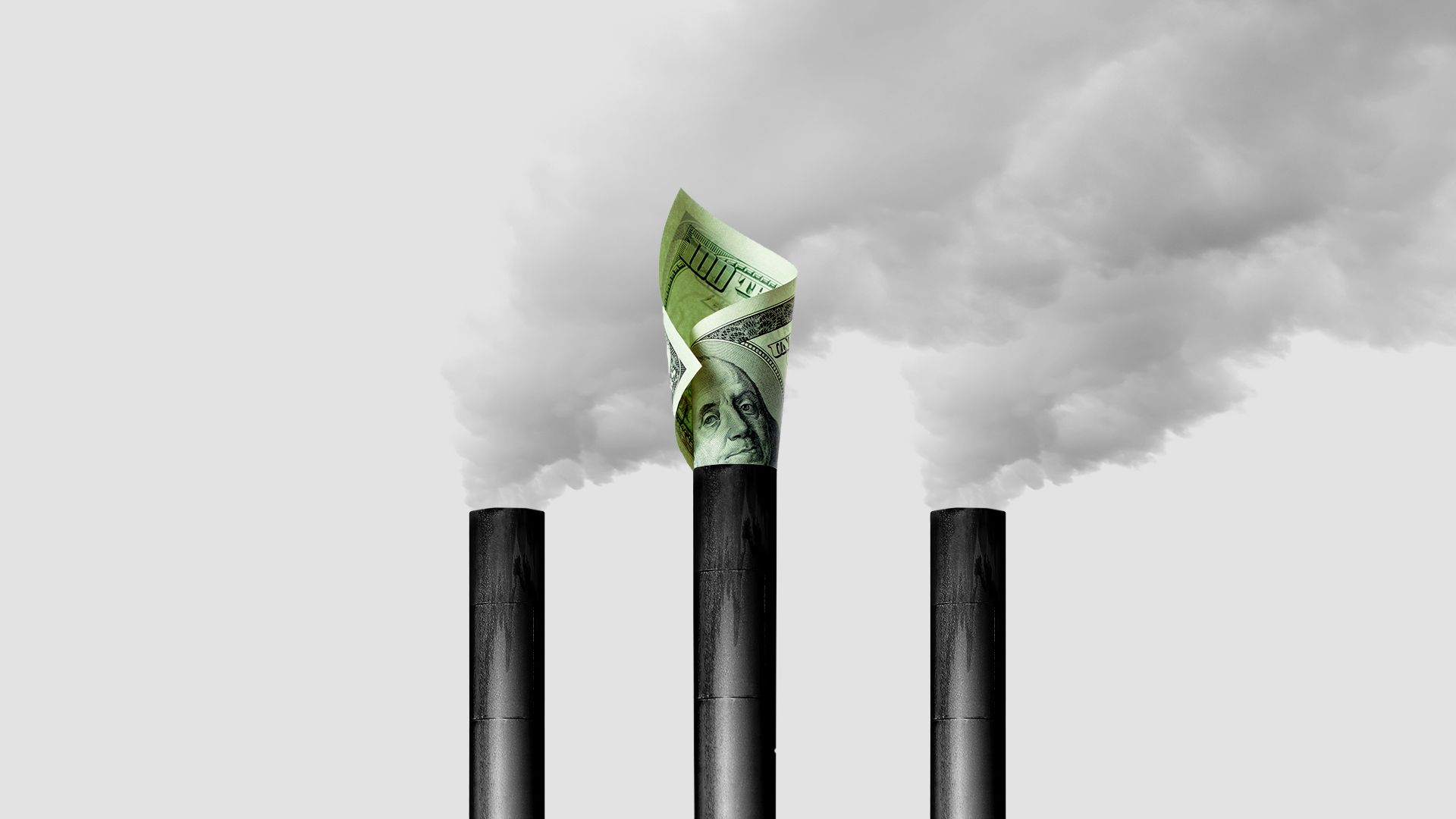2020 Democrats pushing to end public financing of fossil fuels
Add Axios as your preferred source to
see more of our stories on Google.

Illustration: Rebecca Zisser/Axios
The climate plans released this week by Democratic presidential candidates Joe Biden, Jay Inslee and Elizabeth Warren each include provisions to end U.S. government support for new fossil fuel investment overseas.
Why it matters: Many new coal plants — up to 91% in Asia, for example — receive public development support from state-owned enterprises, foreign governments and export credit agencies, or multilateral development banks (MDBs). Reduced access to such financing could mean fewer new plants burning coal, the most carbon-intensive energy source.
Background: Private foreign investors seek high returns when foregoing safer investments in the West, so they are less likely to finance new coal plants in emerging markets if public financing is not available.
- That's why public money has been needed to help lower the risks of such projects, as China, Japan, South Korea and the U.S. have done across South and Southeast Asia.
What's happening: The Biden and Inslee plans would end financial support for new coal from agencies like the U.S. International Development Finance Corporation (USIDFC), the Export-Import Bank and the U.S. Trade and Development Agency, in addition to working with China and other OECD nations on their own commitments.
- Warren, in contrast, has focused on ending oil and gas lending from the Export-Import Bank and USIDFC and does not specifically address coal or OECD talks.
Flashback: The Obama administration had announced an end to coal finance, with some exceptions for the world's poorest countries, and negotiated limits on coal finance from export credit agencies with the OECD. It also worked with the World Bank on coal restrictions that were quickly adopted across most MDBs and development finance institutions (DFIs).
- Trump administration officials have called to reverse MDB coal finance policies, particularly at the European Bank for Reconstruction and Development.
What to watch: Inslee's plan proposes that the U.S. join the Power Past Coal Alliance (PPCA), a group of global governments working to phase out coal power, and use its leverage to pressure countries like China.
- Biden's current plan does not include phasing out coal by 2030, a prerequisite for PPCA membership, though criticism for not taking a strong enough stand on climate could push him to be more aggressive.
The bottom line: Limiting public financial support for new coal plants around the world— 338 GW of which are at a pre-construction stage — could keep developers from bringing all of those online.
Justin Guay directs global climate strategy at the Sunrise Project and advises the ClimateWorks Foundation.
